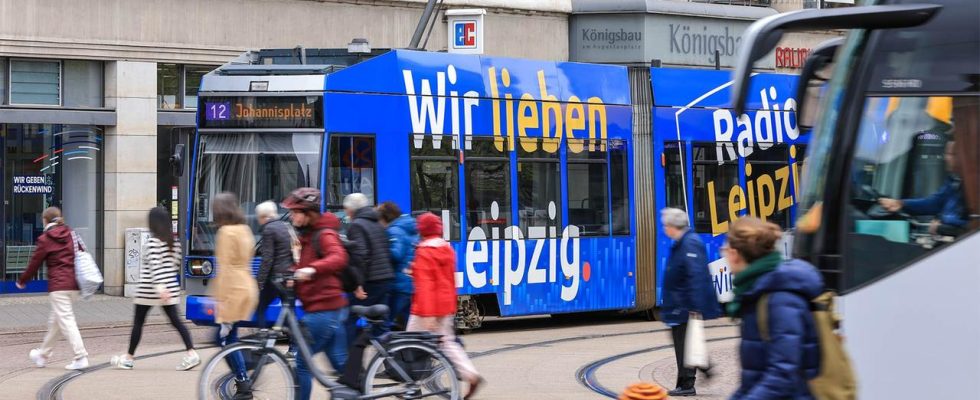Transport companies are also increasingly suffering from a shortage of skilled workers. In Leipzig, more and more S-Bahn trains are being canceled without replacement. Commuters can hardly rely on punctual journeys.
“The train is canceled due to a lack of staff. We ask for your understanding.” Travelers on Deutsche Bahn and local public transport know this announcement only too well. For the S10, which runs – or should run – from Leipzig Central Station to the western district of Grünau, this announcement is currently being made several times a day. Three out of 260 trips took place on the route in the third week of July. That makes 257 failures.
But that is not the rule, emphasizes the association for the Leipzig local transport area (ZVNL). Its chairman and district administrator in the district of North Saxony, Kai Emanuel, says that the S10 was only ordered later as a compression to Grünau: “And it is precisely this repeat order that triggers the corresponding problems at Deutsche Bahn.”
DB Regio travels the route on behalf of the special purpose association and does not want to comment on the failures. However, she mentions a well-known problem to her client as the reason: personnel problems. The association can have little influence on operations, says Emanuel. And hiring another company is not that easy.
No train runs without staff in the signal box
The bottleneck of a functioning network is the signal box. If there is a problem here, i.e. if there is a lack of staff at this important control point, this has an impact on all train traffic. This is the case with the DB network in the area south of Halle. The spokesman for the passenger association “ProBahn” for this region, Carsten Schulze-Griesbach, explains: “Many signal boxes are not manned there. And without signal boxes, not a single train can run, so of course all trains fail.”
This state of emergency prevails nationwide, Halle is no exception. Part of the problem is outdated, in some places even mechanical signal boxes that can only be operated by specially trained personnel. And: The employees cannot simply switch back and forth between the signal boxes, since the training is route-specific.
Every tenth tram journey is saved
The shortage of skilled workers is just as noticeable when you continue to travel by tram within Leipzig: “We are about 90 percent of the capacity that we should actually be driving. We have saved ten percent in off-peak times. That means that people in particular will notice who are out and about late in the evening or at night,” says Marc Backhaus, spokesman for Leipziger Verkehrsbetriebe (LVB).
LVB actually wants to hire 160 new employees this year, says Backhaus. Not even half done. He estimates that the struggle for workers will not ease up in the coming years.
Because drivers, but also reinforcements for the maintenance of the railways, are not only wanted in Leipzig. Of the currently around 152,000 employees in public transport companies that are members of the Association of German Transport Companies, 80,000 employees will retire by 2030. So 50 percent new employees are needed in Germany to maintain the current level of trips.
Too many old people, not enough young people
Public transport is therefore not a special case: there is a shortage of around 630,000 skilled workers across all professions. Experts like Reint Gropp from the Leibnitz Institute for Economic Research in Halle say that the problem of the shortage of skilled workers caused by the aging of society can no longer be solved, it can only be alleviated: “We can take measures and, for example, facilitate the immigration of skilled workers.”
In addition, one could increase the participation of women and older people in the labor market – but despite all these efforts, the labor market will shrink, says Gropp. In Leipzig, LVB spokesman Backhaus hopes for one thing in particular: more immigration to train drivers and to be able to fill the shifts again, even at night.

